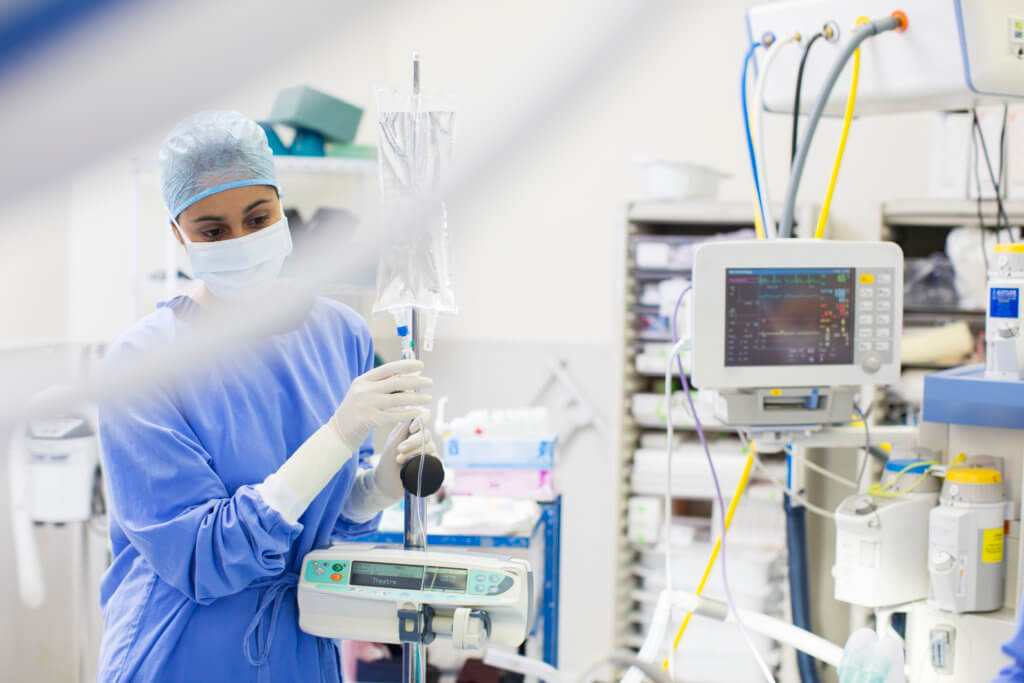The Data “Doctors” Behind the Front Lines
To overcome COVID-19, collaboration between tech and health sectors is crucial. In the Netherlands, technology is providing relief on all fronts in healthcare, spurred by innovation with Artificial Intelligence (AI) and big data.
While the world faces an unprecedented pandemic, doctors and researchers in the Netherlands are among those applying AI solutions like never before. These technological advances highlight how the Dutch are strong innovators and problem solvers, even while facing a crisis of global proportions.
It’s not just the National Institute for Public Health and the Environment leading the way. AI has been helping Dutch researchers in three main ways, in diagnosing patients, assessing risk, and following the curve that every nation is trying to flatten.
Using AI in medical imaging for diagnosis
First and foremost, Dutch researchers launched a European initiative to help battle COVID-19. A team from the Netherlands Cancer Institute urged more than 30 other EU hospitals to submit radiographs of lungs to help create a powerful algorithm. The idea is that the algorithm could accurately diagnose coronavirus cases through CT scans.
Whereas current testing methods take hours to provide results, CT scans could diagnose patients within seconds. This innovative approach requires European collaboration and Dutch researchers were instrumental in getting it started. With more than 3100 health and life science companies, the Netherlands is already a leader in medical research and biopharmaceuticals. This new partnership with a Belgian tech company applies the nation’s know-how to these new challenges, towards providing more accurate testing methods for future diagnoses of COVID-19.
Similarly, Maasstad Hospital has teamed up with Holland AI to study CT scans in order to assess the amount of lung damage in patients with COVID-19. All of these AI implementations could potentially lead to better testing and treatment.
While CT scans may or may not be the way forward with COVID-19 testing, the important takeaway is that Dutch innovation and leadership are paving the way to new ideas and, hopefully, new solutions.
Using AI to assess risk
Dutch scientists are also spearheading programs to help assess risk among the population to help hospitals better prepare for the challenges of COVID-19. For example, by using AI to analyze patient data, doctors can know when patients will need a hospital bed and how long they may remain in the ICU.
Dutch hospitals nationwide have joined the initiative, organized by Amsterdam University Medical Centers, alongside VU University Amsterdam and Maastricht UMC. Institutions are sharing data that, if AI gets it right, should help focus treatments of coronavirus patients in the near future. Another similar initiative out of the University of Leiden, called CLAIRE, have offered to help EU governments through AI fed by data procured in hospitals.
These programs are looking to protect privacy as much as possible, anonymizing patients’ data to help get more people on board, and more quickly, with the benefits that AI could bring in the fight against COVID-19.
But it’s not just in the hospitals. Dutch researchers at the KWR Water Research Institute in Nieuwegein are using AI and data to study the virus in wastewater, helping to mitigate risks of contamination beyond human to human transmission. Dutch applications of big data analysis and AI solutions will continue long after the peak of the crisis passes.
Using AI to flatten the curve
When it comes to flattening the curve and preventing hospitals from becoming over-burdened with COVID-19 patients, images speak louder than words. AI companies like Datagraver in the Netherlands are engaged with visualizing data to help illustrate, among other things, how the nation is succeeding in flattening its own curve.
The Delft University of Technology is applying algorithms to available data to provide forecasts. Their real-time charts allow the public – and policy makers – stay in the loop with easily understood graphs. By feeding their programs with data collected from hospitals and groups like the Dutch Association for Intensive Care, these AI outputs provide context and – above all – hope that the crisis is under control.
Complementary, not Primary
While AI creates exciting and useful resources for researchers and health professionals, one thing is clear: AI is not central in fighting a pandemic like COVID-19. While AI may be a great tool, it doesn’t replace the social and policy-driven changes that have kept the pandemic from spiraling out of control. Nor can it predict future outbreaks.
Still, it is a powerful tool that public officials and healthcare leaders need to embrace, trust, and understand, without depending on it as a cure. What is certain is that AI will help in the future, with more robust and innovative technology now primed for future epidemics. It won’t save us from coronavirus, but its effects will be nonetheless felt.
Despite the limits, this innovative and swift reaction in the Netherlands underscores how the nation excels in AI applications. Having opened the world’s largest AI research network, CLAIRE, in the Hague in December 2019, the Netherlands is already ahead of the game. As the COVID-19 crisis calms, the nation will have an even stronger understanding of AI’s capabilities for when the next crisis hits.
23 April 2020


